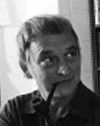Jack W. Brehm
 Jack Brehm (1928-2009) grew up in Des Moines, Iowa. After high school, he served in the Navy and then attended Harvard College. After graduating from Harvard, Jack attended graduate school at the University of Minnesota, working with Leon Festinger. His PhD dissertation research established the free choice cognitive dissonance paradigm and was the first dissonance study to be published.
Jack Brehm (1928-2009) grew up in Des Moines, Iowa. After high school, he served in the Navy and then attended Harvard College. After graduating from Harvard, Jack attended graduate school at the University of Minnesota, working with Leon Festinger. His PhD dissertation research established the free choice cognitive dissonance paradigm and was the first dissonance study to be published.
Following graduate school, Jack spent three years at Yale University, where he collaborated with Arthur (Bob) Cohen on seminal experiments concerned with the role of choice and commitment in dissonance processes. He then moved to Duke University to join Edward (Ned) Jones in establishing what turned out to be an exceptionally successful graduate program in social psychology. At Duke, Jack conceived his influential theory of psychological reactance. His first reactance publication was a Journal of Personality and Social Psychology article concerned with a favor’s potential to reduce helping. The article not only introduced reactance to the field, but also stands as the only empirical article in the history of the journal to include no references.
Shortly after publishing the article, Jack published his classic monograph, A Theory of Psychological Reactance. In 1975, Jack joined the psychology faculty at the University of Kansas. At Kansas, Jack devoted himself to understanding affective processes even more fundamental than dissonance and reactance. An interest in desire led to his theory of motivation intensity. An interest in subjective aspects of emotion led to its "sister" theory of emotion intensity. In 1998, Jack received the Society of Experimental Social Psychology’s Distinguished Scientist Award. Jack was also honored at two Kansas gatherings, one celebrating his 60th birthday and the other celebrating his career upon retirement. The second gathering led to a festschrift. Jack continued working in retirement and had his last paper published in 2010.
- Much thanks to Sharon Stephens Brehm for acting as the co-ordinator of this effort to honor Jack Brehm, and to Laura Leviton and the following individuals for donating to the Foundation in his name. They all share their personal memories of Jack.Jack was a remarkable human being. He did not seek glory: He wanted to learn, understand, and teach. His students loved him.
-Sharon Stephens Brehm - I remember Jack as a wonderfully kind and patient dissertation advisor, always with a twinkle in his eye and a good sense of humor. He taught me much during graduate school and a research fellowship that to this day helps me to look at information critically and not jump to conclusions. Also, to look for the best in people.
-Lenore Behar - With respect to Jack Brehm, I have two meaningful memories. First, he was a craftsman. In my initial, fumbling attempts to conduct research with live, human subjects, he carefully observed, critiqued in detail, and took the time to show me how to improve. Second, when I later came to disagree with him about what social psychologists should and should not be doing, he listened carefully, thought deeply, and tried, sincerely, to make me see the error of my ways. He was always the scrupulously honest intellectual.
-Russell Jones - In chapter 1 of the festschrift that Sharon Brehm, Jeff Greenberg and I prepared for Jack, I provided the following list of Jack’s “secrets,” those things that allowed him to be so successful as a teacher and appealing as a colleague and friend. I think that it captures my view pretty well.
- integrity,
- a lack of pretentiousness,
- an openness to human diversity,
- an acceptance of human frailty,
- a gift for disagreeing with people without putting them on the defensive,
- a gift for identifying strengths in others, and, of course,
- a formidable intellect.
-Rex Wright

